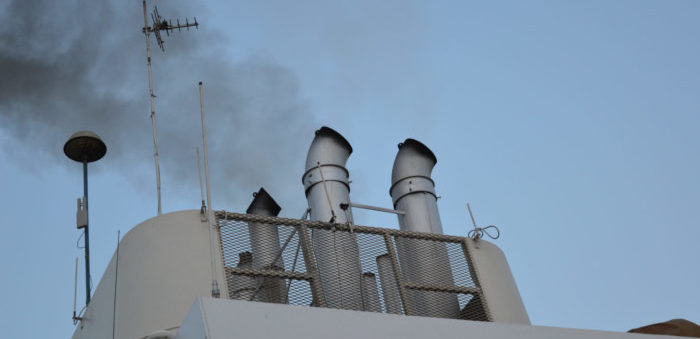The ambassadors of EU member states agreed on their position on a proposal which updates existing EU rules on shipping emissions monitoring, and partially aligns them with the global data collection system for ship fuel oil consumption of the IMO.
The European Commission adopted a relevant proposal on 4 February, to revise the EU system for monitoring, reporting and verification of CO2 emissions from maritime transport and harmonize it with IMO rules.
As of 2019, ship owners are obliged to monitor and report under two systems: the EU MRV (monitoring, reporting, verification) regulation and the global IMO DCS (data collection system).
In a meeting of the Committee of Permanent Representatives on 25 October, the Council agreed that partly aligning the definitions, the monitoring parameters and the monitoring plans and templates of the MRV regulation contributes to reducing the administrative burden for shipping companies and national authorities and facilitates compliance with the reporting obligations under the two systems.
However, the Council believes that the monitoring and reporting of cargo carried should remain compulsory. This information contributes to a better understanding of the fuel efficiency of ships. The Commission had proposed to turn cargo carried into a voluntary reporting element.
The Council also added a clause which asks the Commission to review the functioning of the regulation.
The agreement reached means that the Council is ready to start negotiations with the European Parliament. The European Parliament has not yet reached a position on this proposal.
The maritime transport sector has to become more energy efficient and use less fuel to contribute to our climate goals. We want companies and the general public to know how much fuel each ship uses. This means we will be able to compare ships’ emissions and choose more energy efficient ones. This has environmental benefits. We are also looking to the future, as we are asking the Commission to review this regulation in light of further experience gained.
…said Krista Mikkonen, Minister of Environment and Climate of Finland.
At EU level, CO2 emissions from maritime transport increased by 48% between 1990 and 2008. In 2015, maritime transport caused 13% of the overall EU greenhouse gas emissions from the transport sector.
In 2015, the Council and the European Parliament adopted the so-called MRV regulation, which for the first time set out rules for the monitoring, reporting and verification of CO2 emissions from maritime transport.
At global level, the IMO created its legal framework for a global data collection system (DCS) for fuel oil consumption of ships in 2016.
As a result, since January 2019 ships performing maritime transport activities related to European Economic Area (EEA) ports have to fulfil monitoring and reporting requirements under both the EU MRV Regulation and the global IMO DCS.































































